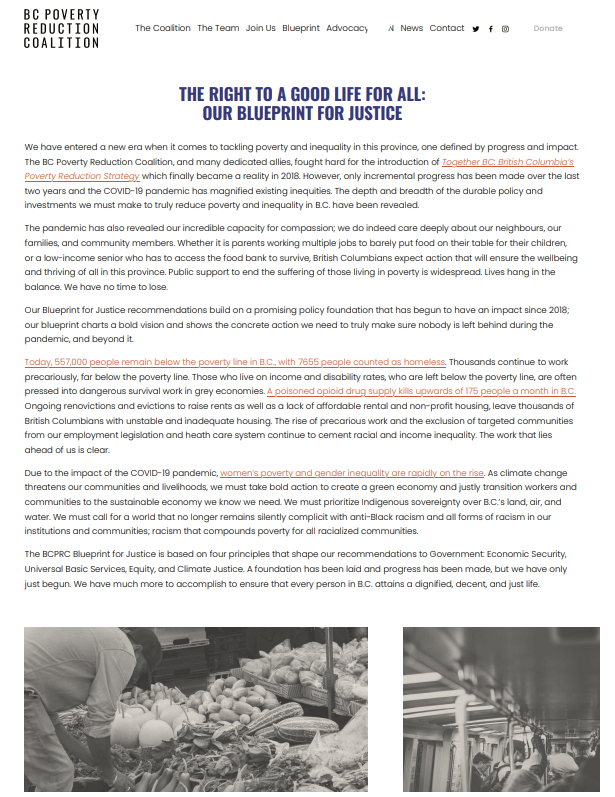24 search results
for
In poverty
Climate justice
Recommendation 1: Take bold action to tackle the climate crisis, while ensuring lower income households are not made worse off, and indeed, that social justice and economic security is enhanced.-
Category and theme:
Groups affected:
Location of recommendation:
Climate justice
Recommendation 2: Continue with annual increases to the carbon tax while ensuring this taxation incorporates low income transfers that sufficiently offset any negative impacts to low income households or individuals (such as an expansion of the low-income carbon tax credit).-
Category and theme:
Groups affected:
Location of recommendation:
Climate justice
Recommendation 3: Develop localized renewable energy projects (wind, solar, tidal), working with communities and Indigenous Nations as partners, to help communities avoid energy poverty and reduce emissions.-
Category and theme:
Groups affected:
Location of recommendation:
Climate justice
Recommendation 4: Provide resources and subsidies to low-income households to improve energy efficiency, install electric heat pumps, household-level solar and other renewable energy sources.-
Category and theme:
Groups affected:
Location of recommendation:
Climate justice
Recommendation 5: Implement UN Sustainable Development Goal 1.5: ‘By 2030, build the resilience of the poor and those in vulnerable situations and reduce their exposure and vulnerability to climate-related extreme events and other economic, social, and environmental shocks and disasters’ in B.C.-
Category and theme:
Groups affected:
Location of recommendation:
Equity
Recommendation 10: Address the needs of those most likely to be living in poverty and impacted by intersecting colonialism, racism, ableism, heterosexism, transphobia, and gender inequality.-
Category and theme:
Groups affected:
Location of recommendation:
Equity
Recommendation 12: Address the unique needs of systemically disadvantaged groups to access all services, including targeted measures to remove barriers to access and tailored supports.-
Category and theme:
Groups affected:
Location of recommendation:
Equity
Recommendation 14: Amend the B.C. Human Rights Code, RSBC 1996, c210 to prohibit discrimination and harassment based on social condition.-
Category and theme:
Audience:
Groups affected:
Location of recommendation:
Equity
Recommendation 19: Implement investments and policies to target LGBTQIA2S+ poverty.-
Category and theme:
Groups affected:
Location of recommendation:
Equity
Recommendation 21: The BC Human Rights Commission to prioritize stigma-auditing areas of law and policy that most directly impact highly stigmatized populations including sex workers in areas such as:- Public space governance,
- Income assistance and disability policy,
- Housing policy and residential tenancy law,
- Child welfare law and policy,
- Policing law and policy,
- Health policy related to mental health and substance use,
- Privacy law as it relates to people who live in public spaces and people who are criminalized as a result of poverty and substance use.
-
Category and theme:
- Ableism ,
- Accessibility ,
- Accessible services and technology ,
- Discrimination and hate ,
- Economic inequality ,
- Gender-based violence ,
- Health ,
- Housing and homelessness ,
- Income insecurity and benefits ,
- Mental health and detention ,
- Other ,
- Policing ,
- Policing and the criminal justice system ,
- Poverty ,
- Poverty and economic inequality ,
- Privacy ,
- Public services ,
- Sexism ,
- Tenancy rights ,
- Workers’ rights
Audience:
Groups affected:
Location of recommendation:
